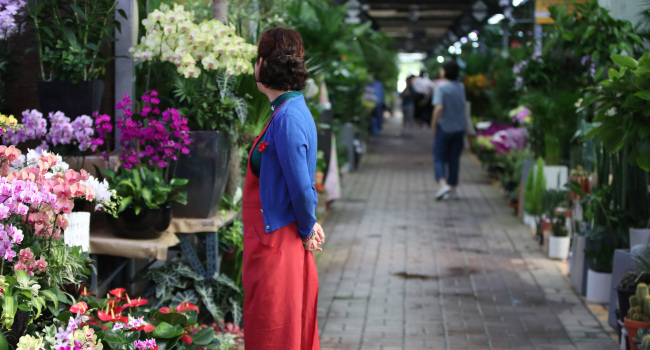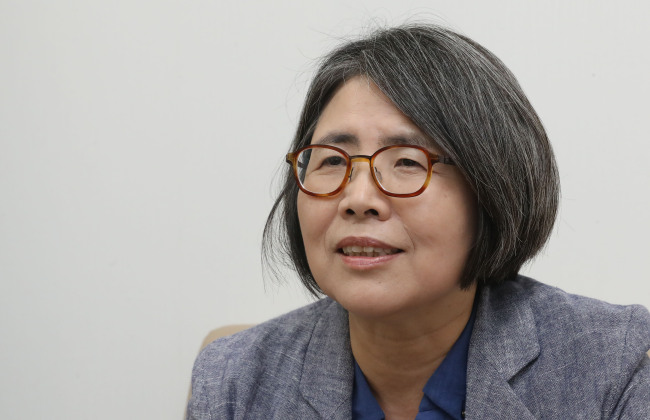Nearly a year after the implementation of an anti-corruption law, 9 in 10 Koreans said the law was effective, a recent survey showed, despite an ongoing debate on whether to raise price ceilings, as the law bans those subject to it from receiving meals and gifts exceeding designated prices.

A flower shop owner looks at the empty store. Yonhap
According to a survey conducted last month by professor Lim Dong-kyun from University of Seoul, 89.5 percent of some 1,202 respondents said that the new law was effective. Some 45.6 percent said the impact was little, while 5.6 percent said the changes were huge. Just 0.6 percent said there was no change at all.
The “Kim Young-ran law,” named after the former Supreme Court justice who first drafted it, bars civil servants, journalists and teachers, as well as their spouses, from accepting meals and gifts worth more than 30,000 won ($27) and 50,000 won, respectively. It took effect on Sept. 28 last year.
The limits on the value of meals, gifts and congratulatory and condolence money effect some 4 million South Koreans.
The report showed that 52.9 percent of respondents said they received less requests for recruitment favors. Slightly over 55 percent said they sent and received gifts less often after the law was introduced.
About 36 percent said they dined less often with employees, while 43.6 percent said they paid bills separately more often compared to before.
Almost half, 48 percent, said further revision is needed to strengthen the law, such as fixing the price ceiling of meals, gifts and congratulatory and condolence money. Among those under the direct effect of the law, 36 percent echoed the view.
Rep. Kang Hyo-sang of the main opposition Liberty Korea Party proposed in June a revision bill to the current anti-corruption law, suggesting to raise the cap on the value of meals and gifts each to 100,000 won, while lowering that on congratulatory and condolence money to 50,000 won.
Respondents, at the same time, said there are still uncertainties with regards to the scope and implementation.
Around 37 percent said the standards of the legislation is too vague to be applied to real life, followed by those who said “punishment is weak and targeting only certain groups of people.”

Kim Young-ran. Yonhap
With the Chuseok holiday just around the corner, complaints of the price limits on meals and gifts have been growing, as many say the caps are set too low without considering market prices.
Protests are strong especially from the agriculture and food industries, which say they have seen large decreases in sales after the law’s effectuation.
Korea Rural Economic Institute data showed that seven major department stores saw a 14.4 percent on-year drop in sales of gift sets for the Lunar New Year holiday early this year. Sales of gift sets comprising agricultural products declined by 25 percent.
However, in the above mentioned survey, about 70 percent of those who run their own business said that their income had not changed compared to a year ago, while only 8 percent said their income dramatically worsened.
Professor Lim, who led the survey, said during a forum on the anti-corruption law hosted Wednesday that “it is undeniable that the anti-corruption law has made actual changes in Korean society in terms of social and culture aspects.”
As of last month, the Supreme Prosecutors’ Office had booked 109 people for violating the new regulations, with five of them indicted on criminal charges.
By Kim Da-sol (ddd@heraldcorp.com)


![[Exclusive] Korean military set to ban iPhones over 'security' concerns](http://res.heraldm.com/phpwas/restmb_idxmake.php?idx=645&simg=/content/image/2024/04/23/20240423050599_0.jpg&u=20240423183955)

![[Graphic News] 77% of young Koreans still financially dependent](http://res.heraldm.com/phpwas/restmb_idxmake.php?idx=645&simg=/content/image/2024/04/22/20240422050762_0.gif&u=)


